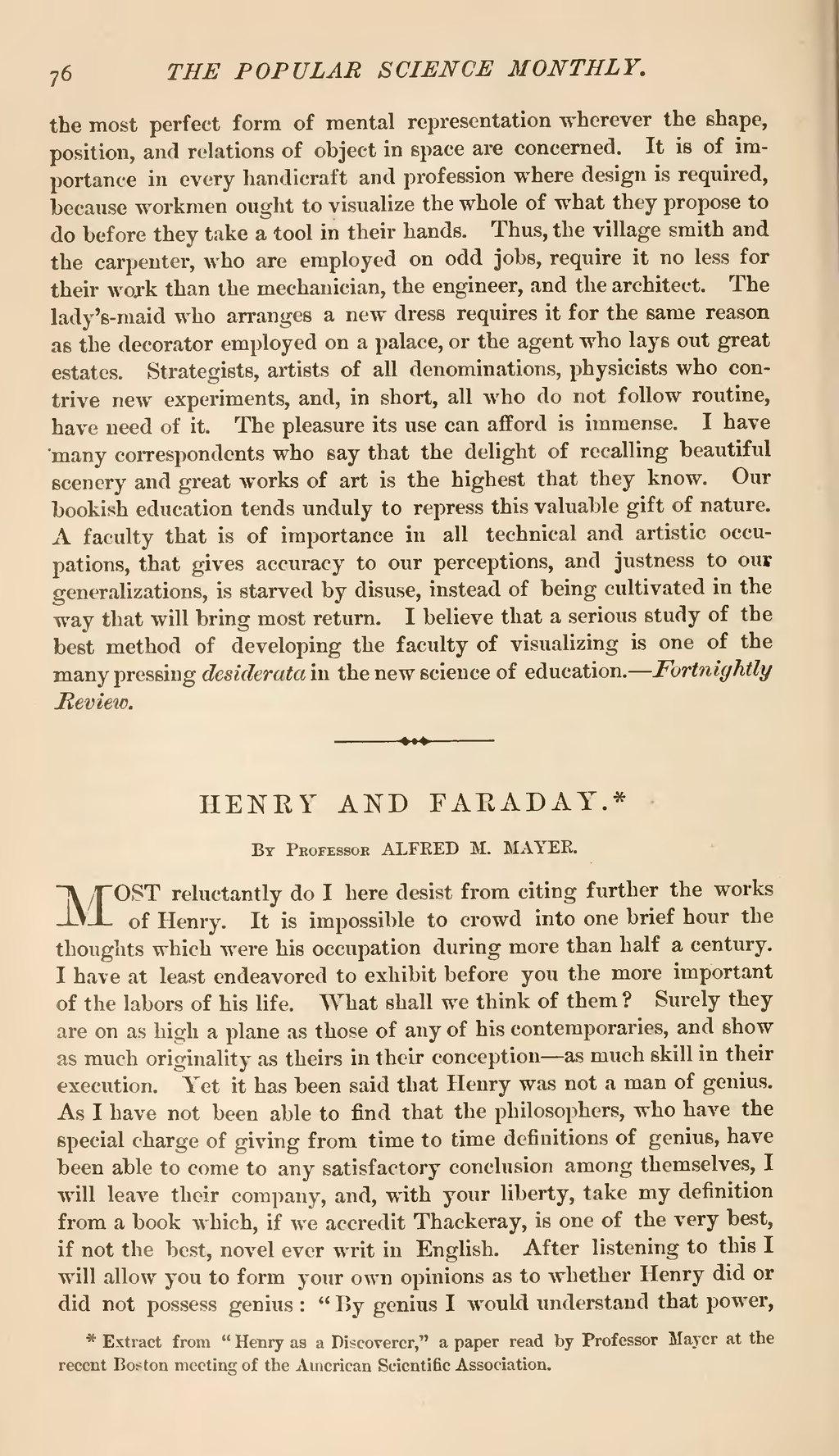the most perfect form of mental representation wherever the shape, position, and relations of object in space are concerned. It is of importance in every handicraft and profession where design is required, because workmen ought to visualize the whole of what they propose to do before they take a tool in their hands. Thus, the village smith and the carpenter, who are employed on odd jobs, require it no less for their work than the mechanician, the engineer, and the architect. The lady's-maid who arranges a new dress requires it for the same reason as the decorator employed on a palace, or the agent who lays out great estates. Strategists, artists of all denominations, physicists who contrive new experiments, and, in short, all who do not follow routine, have need of it. The pleasure its use can afford is immense. I have many correspondents who say that the delight of recalling beautiful scenery and great works of art is the highest that they know. Our bookish education tends unduly to repress this valuable gift of nature. A faculty that is of importance in all technical and artistic occupations, that gives accuracy to our perceptions, and justness to our generalizations, is starved by disuse, instead of being cultivated in the way that will bring most return. I believe that a serious study of the best method of developing the faculty of visualizing is one of the many pressing desiderata the new science of education.—Fortnightly Review.
| HENRY AND FARADAY.[1] |
By Professor ALFRED M. MAYER.
MOST reluctantly do I here desist from citing further the works of Henry. It is impossible to crowd into one brief hour the thoughts which were his occupation during more than half a century. I have at least endeavored to exhibit before you the more important of the labors of his life. What shall we think of them? Surely they are on as high a plane as those of any of his contemporaries, and show as much originality as theirs in their conception—as much skill in their execution. Yet it has been said that Henry was not a man of genius. As I have not been able to find that the philosophers, who have the special charge of giving from time to time definitions of genius, have been able to come to any satisfactory conclusion among themselves, I will leave their company, and, with your liberty, take my definition from a book which, if we accredit Thackeray, is one of the very best, if not the best, novel ever writ in English. After listening to this I will allow you to form your own opinions as to whether Henry did or did not possess genius: "By genius I would understand that power,
- ↑ Extract from "Henry as a Discoverer," a paper read by Professor Mayer at the recent Boston meeting of the American Scientific Association.

